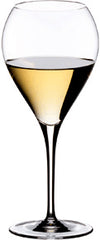Description
A late-harvest sweet white passito from Sardinia, 14% ABV, 100% Nasco, produced by Santadi. 0.375 L bottle, 2019 vintage. A wine born from the passion of a group of producers from Sulcis, a unique area for the production of passito wines. The Nasco grapes are hand-picked from a late-harvest harvest. The sugar-rich must, after separation from the skins, is fermented in stainless steel tanks. It continues to evolve for several months in third-use French oak barriques. An intense bouquet of honey, caramel, vanilla sugar, and cloves. Amber color accompanied by great consistency. Persistent and balanced, with a sweetness that is never cloying and a finish reminiscent of orange blossom.
Awards
Tasting notes

Perfume

Color

Taste
Serve at:
12 - 14 °C
Longevity:
10 - 15 years

- Start up year: 1960
- Oenologist: Riccardo Curreli, Giorgio Marone
- Bottles produced: 1.800.000
- Hectares: 650
Since then, the only direction has been upwards, as the Santadi wines continue to spread and reap appreciation worldwide. A success story made possible by the whole team, which includes the grape growers, directors, marketing staff and all winery workers, forming a reservoir of expertise that is an asset for the whole territory. Read more


| Name | Santadi Latinia Passito 0.375L 2019 |
|---|---|
| Type | White late harvest dessert wine dessert wine |
| Denomination | VdT |
| Vintage | 2019 |
| Size | 0,375 l |
| Alcohol content | 14.0% by volume |
| Grape varieties | 100% Nasco |
| Country | Italy |
| Region | Sardinia |
| Vendor | Santadi |
| Origin | Sulcis Area. |
| Soil composition | Mostly loose and sandy. |
| Cultivation system | Head-training. |
| Harvest | Between late September and late October. Grapes are harvested according to biotic and abiotic factors that determine their ripeness. Grapes are only harvested when they reach a good level of over-ripeness. |
| Wine making | The juice is rich in sugars and fermented in stainless steel tanks after separation from the skins. Alcoholic fermentation, which due to the high density of the must proceeds very slowly, is at some point naturally inhibited |
| Aging | For several months in third-passage French oak barriques. |
| Allergens | Contains sulphites |






